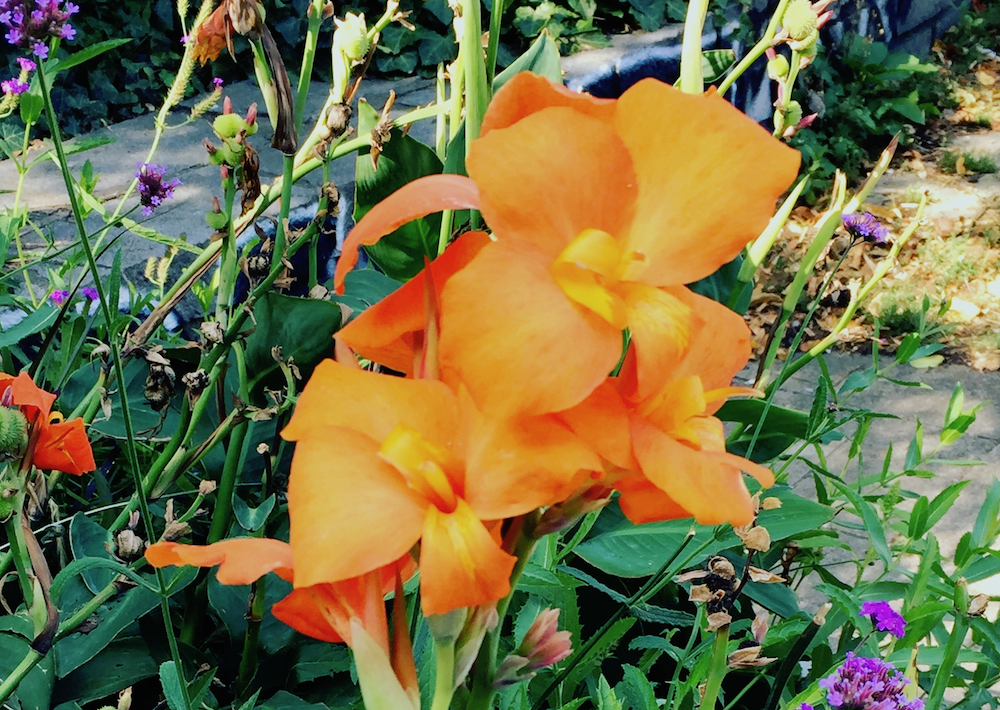Yoga does not just happen on the mat. In fact, the eightfold path of Yoga as laid out by the sage Patanjali describes two steps before going into the actual practice of asanas (body postures) and pranayama (breathing techniques) and then moving on from there. These first two limbs, pre-asana, are all about our attitudes that guide our actions in day to day life and how we treat ourselves and others. These principles of conduct are summed up in the Yamas and Niyamas and how much we have integrated them will show in our asana, pranayama and meditation practice on the mat. Whatever attitudes we bring to our daily lives we are sure to bring to our mats as well.
All too often we step on our yoga mats with a specific goal in mind; working on that posture, mastering that “awful” balancing pose, going deeper into the forward folds or backbends, performing each pose perfectly, becoming more flexible, getting stronger, etc. etc. Or, we might tell ourselves, we have long realized that Yoga is not just a physical practice so we start our practice with the expectation to feel better – emotionally and/or mentally. We aim at being able to drop whatever we are disturbed by and long to return to a blissful state, not worrying about anything. Whether our goals may be physically, emotionally or mentally, there is nothing wrong with having them. Where we get in trouble, however, is when we get caught up in those goals and begin to chase them almost obsessively. Whenever we are already “there” with our thoughts, we are not “here” anymore. And the surest way to never get “there” is the inability to be “here”.
So, that is why in the second limb of Yoga, the Niyamas, we find the concept of Santosha, contentment. Santosha is about recognizing the perfection in the seemingly imperfect, finding comfort in the uncomfortable, and becoming content in the midst of a mind filled with wants, wishes, desires, and conditions. Santosha is about surrendering to the present moment, no matter how unbearable it seems. Santosha, contentment is about radical acceptance – of ourselves and others, and about bringing gratitude into the circumstances we are finding ourselves in. What if – whether we logically understand it or not – everything in this moment is exactly as it is meant to be and our only job is to simply practice acceptance and become content with what is?
It is the power of contentment – a potent combination of acceptance and gratitude – that brings about transformation. The longer we resist something – be it our current physical limitations, uncomfortable feelings or difficult situations – and wish it was something other than what it is, the longer we are stuck with it. In that moment where we find acceptance and even gratitude for what is, we become free. Not because the outer conditions change but because we change our internal response to those outer conditions. Then they no longer have power over us and how we look at life. Then we find contentment. No matter what. The Yoga Sutras say “santosat anuttamah sukhalabhah” – “From contentment and benevolence of consciousness comes supreme happiness” (Sutra 2.42). So happiness is not about the external conditions meeting our expectations but instead comes from cultivating a sense of contentment regardless.
So, the next time you step on your mat, rather than seeking for perfection in an asana, notice with gratitude what your body is already capable of doing. Also, when you are working through a difficult time and want to use your practice to releasae emotions we usually judge as “negative” what about making friends with those emotions? May it be depression, heaviness, grief, anger, sadness, loss, confusion – don’t look away, wishing them away or pretending it’s not going on. Be with it, breath with it, and maybe find a sense of gratitude for these feelings. They are here to teach you something. They are here to let you know you are a human being, able to love and to connect to others, otherwise we could not feel pain. We have to know the darkness in order to know the light. Walking through our own darkness, confronting and embracing our own “inner demons” allows us to be more authentic and honest and relate to others with compassion. So practicing contentment with ourselves, no matter where we are at allows us to connect with those around us. And that is the real practice of Yoga – Union.
May the light in me recognize the light in You!
Namaste!
by Carina Hilmar

